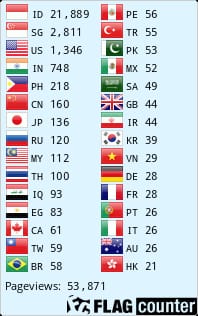The Influence of Entrepreneurship and Career Planning in the Regeneration of Dentist Family Businesses in Indonesia
DOI:
https://doi.org/10.30649/denta.v19i1.6Keywords:
Entrepreneurship, Career Modelling, Dentistry, Family Business, Self-efficacyAbstract
Background: Many children of parents working in the healthcare industry tend to pursue the same profession as their parents or family members. Dentistry is one of the medical professions often passed down to the next generation, as children grow up observing their parents, close relatives, or role models. This study explores the role of Entrepreneurship and Self Efficacy in influencing career selection among second or later-generation dentists. Career selection motivation is shaped by both internal and external factors, including the entrepreneurial drive to manage and sustain a family-owned dental practice. Objective: This research aims to provide insights into the motivations underlying career choices in dentistry. Materials and Methods: A purposive snowball sampling technique was used to collect data from 50 dentists across various cities in Java, Indonesia, all of whom are at least second-generation dentists actively working in family-owned or independent practices. Results: The findings highlight that motivation and Career-Related Modeling play a significant role in shaping the career preferences of second-generation dentists, particularly in family-owned businesses. This study contributes to understanding how entrepreneurial influences and career role models impact career decisions in the field of dentistry. Conclusion: The results of this research highlighted the dominant influence of entrepreneurial drive in second and later generation dentist in choosing dentist as a profession.
Downloads
References
Bandura, A.Self-efficacy: The Exercise of Control.New York: Freeman; 1997
Abdul Hamid, N. F., Jaafar, A., Asming, N. N., Suria, N. S., Ho, T. K., Lim, Z. Y. J., & Lim, T. W. (2024). Factors Influencing the Selection of Dentistry as a Career Among Prospective Candidates: A Multicentre Cross-Sectional Study. European Journal of Dental Education. https://doi.org/10.1111/eje.13044
Ahmad, Z., Najam, U., & Mustamil, N. (2024). Uncovering the research trends of family-owned business succession: past, present and the future. Journal of Family Business Management, ahead-of-print(ahead-of-print). https://doi.org/10.1108/JFBM-04-2024-0084
Kemenkes RI. Data dan Informasi Profil Kesehatan Indonesia 2023. 2018 (Accessed on September 28th 2024 on http://www.depkes.go.id/)
Caesarani, F. P., Astria, F., Syakurah, R. A., Aulia, B., & Siburian, R. (n.d.). MODELING OF CAREER CHOICE BEHAVIORS IN INDONESIAN DENTISTRY STUDENTS. Jurnal Kedokteran Gigi Universitas Baiturrahmah, 7(2), 114–122.
Cheng, F. C., Wang, L. H., Wang, Y. C., & Chiang, C. P. (2024). The influence of dentist parents on their children’s career decision-making for dentistry or medicine. In Journal of Dental Sciences (Vol. 19, Issue 1, pp. 678–681). Association for Dental Sciences of the Republic of China. https://doi.org/10.1016/j.jds.2023.10.003
Davavilana, F. A., Putri, F. M., & Suryanti, N. (2024). Career choice and the influencing factors of bachelor and dental profession students: an observational study. Padjadjaran Journal of Dentistry, 36(1), 77. https://doi.org/10.24198/pjd.vol36no1.48690
Hastenteufel, J., & Staub, M. (2020). Current and future challenges of family businesses. Managerial Economics, 20(2), 119. https://doi.org/10.7494/manage.2019.20.2.119
Yeheskiel Pane, Y., & Christanti, R. (2023). Exploring Family Businesses Succession in Indonesia: The Knowledge Management Lenses. Jurnal Ilmiah Manajemen, 11(1), 52–67. https://creativecommons.org/licenses/by-nc/4.0/
Peng, B., Li, J., & Liu, D. (2023). Entrepreneurial intention of public hospital dentists and its importance factors: a study based on machine learning and binary logistic regression. https://doi.org/10.21203/rs.3.rs-3285589/v1
Redmond, P. (2017). Talking about my generation: dentistry in a multi-generational world. Faculty Dental Journal, 8(4), 156–159. https://doi.org/10.1308/rcsfdj.2017.156
Brinkerink, Jasper & Rondi, Emanuela & Benedetti, Carlotta & Arzubiaga, Unai. (2020). Family business or business family? Organizational identity elasticity and strategic responses to disruptive innovation. Journal of Family Business Strategy. 10.1016/j.jfbs.2020.100360.
Sinring, A. and Fadhilah, N. (2023). Other people in career choice influence career self-efficacy and individual career self-management. European Journal of Educational Research, volume-12-2023(volume-12-issue-2-april-2023), 1045-1057. https://doi.org/10.12973/eu-jer.12.2.1045
Ramasamy, R. and Nithyanandan, D. (2016). Positive psychological factors of career development among undergraduate students. International Journal of Indian Psychology, 3(4). https://doi.org/10.25215/0304.057
Caprara, G., Fida, R., Vecchione, M., Bove, G., Vecchio, G., Barbaranelli, C., … & Bandura, A. (2008). Longitudinal analysis of the role of perceived self-efficacy for self-regulated learning in academic continuance and achievement.. Journal of Educational Psychology, 100(3), 525-534. https://doi.org/10.1037/0022-0663.100.3.525
Mu, F., Liu, J., Lou, H., Zhu, W., Wang, Z., & Li, B. (2024). How breaking a sweat affects mood: the mediating role of self-efficacy between physical exercise and emotion regulation ability. Plos One, 19(6), e0303694. https://doi.org/10.1371/journal.pone.0303694
Li, J., Nair, S., & Wider, W. (2022). Effects of family background and entrepreneurship competition on students’ entrepreneurial intention in china. Humanities and Social Sciences Letters, 10(4), 557-568. https://doi.org/10.18488/73.v10i4.3185
Georgescu, M. and Herman, E. (2020). The impact of the family background on students’ entrepreneurial intentions: an empirical analysis. Sustainability, 12(11), 4775. https://doi.org/10.3390/su12114775
i, M., Kodali, U., Gadicherla, S., Smriti, K., Singh, A., & Khurshid, Z. (2024). The role of soft skills in dentaKodall education: challenges and importance. European Journal of Dentistry. https://doi.org/10.1055/s-0044-1791938
Brijlal, P. and Brijlal, P. (2013). Entrepreneurial knowledge and aspirations of dentistry students in south africa. Industry and Higher Education, 27(5), 389-398. https://doi.org/10.5367/ihe.2013.0171
Sahputri, R., Mawardi, M., Yumarni, T., & Sujarwoto, S. (2023). Entrepreneurship education, family entrepreneurial orientation and entrepreneurial intention among students in indonesia. Journal of International Education in Business, 16(3), 295-311. https://doi.org/10.1108/jieb-02-2022-0010
Kurjono, Kurjono. "Entrepreneurial Intentions: Between Entrepreneurial Knowledge, Entrepreneurial Skills and Perceived Control Behavior." Dinamika Pendidikan 17.2 (2022): 146-163.
Mollica, A., Cain, K., & Callan, R. (2017). Using assessments of dental students’ entrepreneurial self‐efficacy to aid practice management education. Journal of Dental Education, 81(6), 726-731. https://doi.org/10.21815/jde.016.036
Jia-bi, W., Peng, B., Zhou, H., & Zhang, J. (2020). Dentists’ entrepreneurial intention and associated factors in public hospitals in major cities in guangdong (south china): a cross-sectional study.. https://doi.org/10.21203/rs.3.rs-52297/v2
Roberts, B., Roberts, E., Brachvogel, W., & Epstein, J. (2020). Practice management curricular changes may lead to enhanced preparedness for practice. Journal of Dental Education, 84(8), 887-894. https://doi.org/10.1002/jdd.12136
AlQahtani, S., Murshid, E., Fadel, H., & Kassim, S. (2017). Practicing dentists’ self-efficacy and associated factors in managing the treatment of adults with mental and physical disabilities: an exploratory cross-sectional study in riyadh, saudi arabia. International Journal of Environmental Research and Public Health, 14(12), 1549. https://doi.org/10.3390/ijerph14121549
Barber, M., Wiesen, R., Arnold, S., Taichman, R., & Taichman, L. (2011). Perceptions of business skill development by graduates of the university of michigan dental school. Journal of Dental Education, 75(4), 505-517. https://doi.org/10.1002/j.0022-0337.2011.75.4.tb05074.x
Chaker, H. and Dellagi, H. (2022). Combining teaching methods and developing students’ entrepreneurial skills and entrepreneurial intention: the case of students in the faculty of economics and management of tunis. Industry and Higher Education, 37(4), 551-573. https://doi.org/10.1177/09504222221146426
Christina & Widjojo, H. (2023). A comprehensive entrepreneurship education model based on social cognitive theory. Jurnal Manajemen Teori Dan Terapan | Journal of Theory and Applied Management, 16(2), 339-355. https://doi.org/10.20473/jmtt.v16i2.44034
Dyantyi, N. and Faleni, N. (2023). Entrepreneurship education to stimulate entrepreneurial mindset in chemistry students. International Journal of Research in Business and Social Science (2147-4478), 12(10), 209-216. https://doi.org/10.20525/ijrbs.v12i10.3110
Hakim, N., Ode, H., Rahmadhani, M., & Naim, S. (2024). How entrepreneurial mindset, gender stereotypes, and innovation practices influence the sustainability of women-owned businesses in bogor city, indonesia. International Journal of Business Law and Education, 5(2), 2433-2444. https://doi.org/10.56442/ijble.v5i2.891
Neck, H. and Greene, P. (2010). Entrepreneurship education: known worlds and new frontiers. Journal of Small Business Management, 49(1), 55-70. https://doi.org/10.1111/j.1540-627x.2010.00314.x
Nowiński, W., Haddoud, M., Lančarič, D., Egerová, D., & Czeglédi, C. (2017). The impact of entrepreneurship education, entrepreneurial self-efficacy and gender on entrepreneurial intentions of university students in the visegrad countries. Studies in Higher Education, 44(2), 361-379. https://doi.org/10.1080/03075079.2017.1365359
Saleem, Z., Sethi, A., Hassan, M., & Wajahat, M. (2019). Assessments of dental students’ entrepreneurial self-efficacy to aid practice management. Health Professions Educator Journal, 2(2), 54-59. https://doi.org/10.53708/hpej.v2i2.105
Wardana, L., Narmaditya, B., Wibowo, A., Mahendra, A., Wibowo, N., Harwida, G., … & Rohman, A. (2020). The impact of entrepreneurship education and students' entrepreneurial mindset: the mediating role of attitude and self-efficacy. Heliyon, 6(9), e04922. https://doi.org/10.1016/j.heliyon.2020.e04922
Frenzel, A. C., Goetz, T., Lüdtke, O., & Pekrun, R. (2022). "The interplay of students’ emotions and self-efficacy in academic achievement: A longitudinal study." *Learning and Instruction*, 78, 101536. doi:10.1016/j.learninstruc.2021.101536.
Downloads
Published
How to Cite
Issue
Section
License
Copyright (c) 2025 DENTA

This work is licensed under a Creative Commons Attribution-NonCommercial-ShareAlike 4.0 International License.
Dengan menggunakan Hak Lisensi (sebagaimana didefinisikan di bawah), Anda menerima dan setuju untuk terikat oleh syarat dan ketentuan Lisensi Publik Internasional Creative Commons Atribusi-BerbagiSerupa 4.0 ini ("Lisensi Publik"). Sejauh Lisensi Publik ini dapat diartikan sebagai suatu kontrak, Anda diberikan Hak Lisensi dengan mempertimbangkan penerimaan Anda terhadap syarat dan ketentuan ini, dan Pemberi Lisensi memberikan Anda hak tersebut dengan mempertimbangkan manfaat yang diterima Pemberi Lisensi dari penyediaan Materi Berlisensi berdasarkan syarat dan ketentuan ini.
Bagian 1 – Definisi.
- Materi Adaptasi berarti materi yang tunduk pada Hak Cipta dan Hak Serupa yang berasal dari atau berdasarkan Materi Berlisensi dan di mana Materi Berlisensi tersebut diterjemahkan, diubah, disusun, ditransformasi, atau dimodifikasi dengan cara lain yang memerlukan izin berdasarkan Hak Cipta dan Hak Serupa yang dimiliki oleh Pemberi Lisensi. Untuk tujuan Lisensi Publik ini, jika Materi Berlisensi berupa karya musik, pertunjukan, atau rekaman suara, Materi Adaptasi selalu diproduksi di mana Materi Berlisensi tersebut disinkronkan dalam hubungan waktu dengan gambar bergerak.
- Lisensi Adaptor berarti lisensi yang Anda terapkan pada Hak Cipta dan Hak Serupa dalam kontribusi Anda pada Materi Adaptasi sesuai dengan syarat dan ketentuan Lisensi Publik ini.
- Lisensi Kompatibel BY-SA berarti lisensi yang tercantum di creativecommons.org/compatiblelicenses , yang disetujui oleh Creative Commons sebagai padanan hakiki dari Lisensi Publik ini.
- Hak Cipta dan Hak Serupa berarti hak cipta dan/atau hak serupa yang berkaitan erat dengan hak cipta, termasuk, namun tidak terbatas pada, hak pertunjukan, hak siaran, hak rekaman suara, dan Hak Basis Data Sui Generis, tanpa memperhatikan bagaimana hak tersebut diberi label atau dikategorikan. Untuk tujuan Lisensi Publik ini, hak-hak yang disebutkan dalam Pasal 2(b)(1)-(2) bukan merupakan Hak Cipta dan Hak Serupa.
- Langkah-Langkah Teknologi yang Efektif berarti langkah-langkah yang, jika tidak ada kewenangan yang tepat, tidak dapat dielakkan berdasarkan hukum yang memenuhi kewajiban berdasarkan Pasal 11 Perjanjian Hak Cipta WIPO yang diadopsi pada tanggal 20 Desember 1996, dan/atau perjanjian internasional serupa.
- Pengecualian dan Batasan berarti penggunaan wajar, perlakuan wajar, dan/atau pengecualian atau batasan lain terhadap Hak Cipta dan Hak Serupa yang berlaku untuk penggunaan Anda atas Materi Berlisensi.
- Elemen Lisensi berarti atribut lisensi yang tercantum dalam nama Lisensi Publik Creative Commons. Elemen Lisensi dari Lisensi Publik ini adalah Atribusi dan Berbagi Serupa.
- Materi Berlisensi berarti karya seni atau sastra, basis data, atau materi lain yang kepadanya Pemberi Lisensi menerapkan Lisensi Publik ini.
- Hak Berlisensi berarti hak yang diberikan kepada Anda sesuai dengan syarat dan ketentuan Lisensi Publik ini, yang terbatas pada semua Hak Cipta dan Hak Serupa yang berlaku untuk penggunaan Anda atas Materi Berlisensi dan yang Pemberi Lisensi berwenang untuk melisensikannya.
- Pemberi lisensi berarti individu atau badan yang memberikan hak berdasarkan Lisensi Publik ini.
- Berbagi berarti menyediakan materi kepada publik melalui cara atau proses apa pun yang memerlukan izin berdasarkan Hak Lisensi, seperti reproduksi, tampilan publik, pertunjukan publik, distribusi, penyebaran, komunikasi, atau impor, dan menyediakan materi kepada publik termasuk dengan cara yang memungkinkan anggota publik mengakses materi tersebut dari suatu tempat dan pada waktu yang mereka pilih sendiri.
- Hak Basis Data Sui Generis berarti hak-hak selain hak cipta yang timbul dari Direktif 96/9/EC Parlemen Eropa dan Dewan tanggal 11 Maret 1996 tentang perlindungan hukum basis data, sebagaimana telah diubah dan/atau digantikan, serta hak-hak lain yang pada hakikatnya setara di mana pun di dunia.
- Anda berarti individu atau entitas yang menjalankan Hak Lisensi berdasarkan Lisensi Publik ini. "Anda" memiliki arti yang sesuai.
Bagian 2 – Ruang Lingkup.
- Pemberian lisensi .
- Tunduk pada syarat dan ketentuan Lisensi Publik ini, Pemberi Lisensi dengan ini memberikan Anda lisensi yang berlaku di seluruh dunia, bebas royalti, tidak dapat disublisensikan, tidak eksklusif, dan tidak dapat dibatalkan untuk melaksanakan Hak Lisensi dalam Materi Berlisensi untuk:
- memperbanyak dan Membagikan Materi Berlisensi, secara keseluruhan atau sebagian; dan
- memproduksi, memperbanyak, dan Berbagi Materi yang Diadaptasi.
- Exceptions and Limitations. For the avoidance of doubt, where Exceptions and Limitations apply to Your use, this Public License does not apply, and You do not need to comply with its terms and conditions.
- Term. The term of this Public License is specified in Section 6(a).
- Media and formats; technical modifications allowed. The Licensor authorizes You to exercise the Licensed Rights in all media and formats whether now known or hereafter created, and to make technical modifications necessary to do so. The Licensor waives and/or agrees not to assert any right or authority to forbid You from making technical modifications necessary to exercise the Licensed Rights, including technical modifications necessary to circumvent Effective Technological Measures. For purposes of this Public License, simply making modifications authorized by this Section 2(a)(4) never produces Adapted Material.
- Downstream recipients.
- Offer from the Licensor – Licensed Material. Every recipient of the Licensed Material automatically receives an offer from the Licensor to exercise the Licensed Rights under the terms and conditions of this Public License.
- Additional offer from the Licensor – Adapted Material. Every recipient of Adapted Material from You automatically receives an offer from the Licensor to exercise the Licensed Rights in the Adapted Material under the conditions of the Adapter’s License You apply.
- No downstream restrictions. You may not offer or impose any additional or different terms or conditions on, or apply any Effective Technological Measures to, the Licensed Material if doing so restricts exercise of the Licensed Rights by any recipient of the Licensed Material.
- No endorsement. Nothing in this Public License constitutes or may be construed as permission to assert or imply that You are, or that Your use of the Licensed Material is, connected with, or sponsored, endorsed, or granted official status by, the Licensor or others designated to receive attribution as provided in Section 3(a)(1)(A)(i).
- Tunduk pada syarat dan ketentuan Lisensi Publik ini, Pemberi Lisensi dengan ini memberikan Anda lisensi yang berlaku di seluruh dunia, bebas royalti, tidak dapat disublisensikan, tidak eksklusif, dan tidak dapat dibatalkan untuk melaksanakan Hak Lisensi dalam Materi Berlisensi untuk:
-
Other rights.
- Moral rights, such as the right of integrity, are not licensed under this Public License, nor are publicity, privacy, and/or other similar personality rights; however, to the extent possible, the Licensor waives and/or agrees not to assert any such rights held by the Licensor to the limited extent necessary to allow You to exercise the Licensed Rights, but not otherwise.
- Patent and trademark rights are not licensed under this Public License.
- To the extent possible, the Licensor waives any right to collect royalties from You for the exercise of the Licensed Rights, whether directly or through a collecting society under any voluntary or waivable statutory or compulsory licensing scheme. In all other cases the Licensor expressly reserves any right to collect such royalties.
Section 3 – License Conditions.
Your exercise of the Licensed Rights is expressly made subject to the following conditions.
-
Attribution.
-
If You Share the Licensed Material (including in modified form), You must:
- retain the following if it is supplied by the Licensor with the Licensed Material:
- identification of the creator(s) of the Licensed Material and any others designated to receive attribution, in any reasonable manner requested by the Licensor (including by pseudonym if designated);
- a copyright notice;
- a notice that refers to this Public License;
- a notice that refers to the disclaimer of warranties;
- a URI or hyperlink to the Licensed Material to the extent reasonably practicable;
- indicate if You modified the Licensed Material and retain an indication of any previous modifications; and
- indicate the Licensed Material is licensed under this Public License, and include the text of, or the URI or hyperlink to, this Public License.
- retain the following if it is supplied by the Licensor with the Licensed Material:
- You may satisfy the conditions in Section 3(a)(1) in any reasonable manner based on the medium, means, and context in which You Share the Licensed Material. For example, it may be reasonable to satisfy the conditions by providing a URI or hyperlink to a resource that includes the required information.
- If requested by the Licensor, You must remove any of the information required by Section 3(a)(1)(A) to the extent reasonably practicable.
-
- ShareAlike.
In addition to the conditions in Section 3(a), if You Share Adapted Material You produce, the following conditions also apply.
- The Adapter’s License You apply must be a Creative Commons license with the same License Elements, this version or later, or a BY-SA Compatible License.
- You must include the text of, or the URI or hyperlink to, the Adapter's License You apply. You may satisfy this condition in any reasonable manner based on the medium, means, and context in which You Share Adapted Material.
- You may not offer or impose any additional or different terms or conditions on, or apply any Effective Technological Measures to, Adapted Material that restrict exercise of the rights granted under the Adapter's License You apply.
Section 4 – Sui Generis Database Rights.
Where the Licensed Rights include Sui Generis Database Rights that apply to Your use of the Licensed Material:
- for the avoidance of doubt, Section 2(a)(1) grants You the right to extract, reuse, reproduce, and Share all or a substantial portion of the contents of the database;
- if You include all or a substantial portion of the database contents in a database in which You have Sui Generis Database Rights, then the database in which You have Sui Generis Database Rights (but not its individual contents) is Adapted Material, including for purposes of Section 3(b); and
- You must comply with the conditions in Section 3(a) if You Share all or a substantial portion of the contents of the database.
For the avoidance of doubt, this Section 4 supplements and does not replace Your obligations under this Public License where the Licensed Rights include other Copyright and Similar Rights.
Section 5 – Disclaimer of Warranties and Limitation of Liability.
- Unless otherwise separately undertaken by the Licensor, to the extent possible, the Licensor offers the Licensed Material as-is and as-available, and makes no representations or warranties of any kind concerning the Licensed Material, whether express, implied, statutory, or other. This includes, without limitation, warranties of title, merchantability, fitness for a particular purpose, non-infringement, absence of latent or other defects, accuracy, or the presence or absence of errors, whether or not known or discoverable. Where disclaimers of warranties are not allowed in full or in part, this disclaimer may not apply to You.
- To the extent possible, in no event will the Licensor be liable to You on any legal theory (including, without limitation, negligence) or otherwise for any direct, special, indirect, incidental, consequential, punitive, exemplary, or other losses, costs, expenses, or damages arising out of this Public License or use of the Licensed Material, even if the Licensor has been advised of the possibility of such losses, costs, expenses, or damages. Where a limitation of liability is not allowed in full or in part, this limitation may not apply to You.
- The disclaimer of warranties and limitation of liability provided above shall be interpreted in a manner that, to the extent possible, most closely approximates an absolute disclaimer and waiver of all liability.
Section 6 – Term and Termination.
- This Public License applies for the term of the Copyright and Similar Rights licensed here. However, if You fail to comply with this Public License, then Your rights under this Public License terminate automatically.
-
Where Your right to use the Licensed Material has terminated under Section 6(a), it reinstates:
- automatically as of the date the violation is cured, provided it is cured within 30 days of Your discovery of the violation; or
- upon express reinstatement by the Licensor.
- For the avoidance of doubt, the Licensor may also offer the Licensed Material under separate terms or conditions or stop distributing the Licensed Material at any time; however, doing so will not terminate this Public License.
- Sections 1, 5, 6, 7, and 8 survive termination of this Public License.
Bagian 7 – Syarat dan Ketentuan Lainnya.
- Pemberi Lisensi tidak akan terikat oleh ketentuan atau persyaratan tambahan atau berbeda yang dikomunikasikan oleh Anda kecuali disetujui secara tegas.
- Segala pengaturan, kesepahaman, atau perjanjian mengenai Materi Berlisensi yang tidak dinyatakan di sini terpisah dari dan independen dari syarat dan ketentuan Lisensi Publik ini.
Bagian 8 – Interpretasi.
- Untuk menghindari keraguan, Lisensi Publik ini tidak, dan tidak akan ditafsirkan untuk, mengurangi, membatasi, mengekang, atau memaksakan ketentuan pada penggunaan Materi Berlisensi yang secara sah dapat dilakukan tanpa izin berdasarkan Lisensi Publik ini.
- Sedapat mungkin, jika ada ketentuan dalam Lisensi Publik ini yang dianggap tidak dapat diberlakukan, ketentuan tersebut akan secara otomatis direformasi hingga batas minimum yang diperlukan agar dapat diberlakukan. Jika ketentuan tersebut tidak dapat direformasi, ketentuan tersebut akan dihapus dari Lisensi Publik ini tanpa memengaruhi keberlakuan syarat dan ketentuan lainnya.
- Tidak ada syarat atau ketentuan Lisensi Publik ini yang akan diabaikan dan tidak ada kegagalan untuk mematuhi yang disetujui kecuali disetujui secara tegas oleh Pemberi Lisensi.
- Tidak ada satu pun dalam Lisensi Publik ini yang merupakan atau boleh ditafsirkan sebagai pembatasan atau pengesampingan hak istimewa dan kekebalan apa pun yang berlaku bagi Pemberi Lisensi atau Anda, termasuk dari proses hukum di yurisdiksi atau otoritas mana pun.










